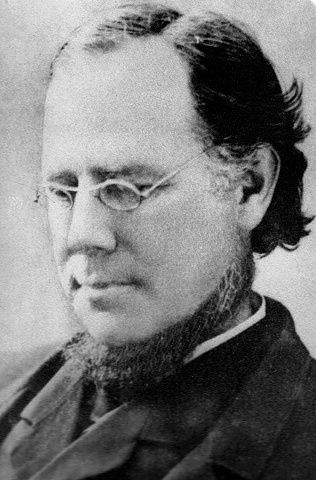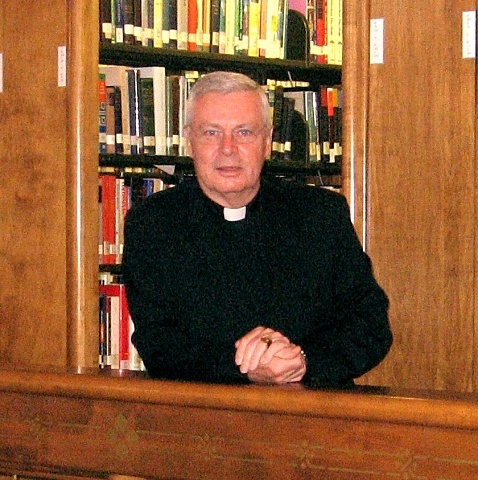January 2, 2013

Look at the infant Savior lying on the cold straw, in the poor crib, in the inclement stable. Who is so poor as to not learn a lesson in poverty from the Divine Child? Who is so timid that fears to approach this child as he stretches out his little hands to seek our touch? Do you not see that He has chosen a cave because it is open, that you might have access to Him and to receive pardon for your sins and be restored to his love? “How can you fear me when I am helpless? How can you doubt me when I give myself to you? How can I show more love to you? Can you not accept my love?”
Can this be the same God who cried out to Adam in the Garden after his fall, who made Adam hide his face and shrink in terror? It is the same God but He comes not as judge and punisher. God comes as Savior, as the Lamb who takes away the sins of the world, as the Divine Lover of souls.
“Peace on earth to men of good will.” Peace. This is what we all seek and do not find. God alone is the giver, for peace springs from reconciliation with man and God alone can produce this. O blessed peace, peace with God, a foretaste of Paradise. O blessed peace, peace with men, a heaven upon earth. The earth has no peace without God. Before the birth of the Savior the earth was at war and the state of the earth is war among the nations, which have abandoned the kingdom of the Savior since his birth. Might makes right, not truth and justice. So it is today. For Christ is the peace of the world and His reign is peace on earth.
O sweet infant Savior, give to us that peace which you came to bring to the earth. Peace to the young and the old, peace to the poor and the sick, peace to the sick and the sorrowful, peace to all who are in need. Peace on earth to all nations and especially to your holy Church and to the Holy Father. Peace to the world at war that your kingdom may begin! Peace to all of good will, enlighten their minds to the truth, unite them in your love that You may reign Lord, in and through and overall. Amen.

“Might makes right, not truth and justice. So it is today.” Father Hecker preaches about the lack of peace in his world and prays that the coming of Christ will bring peace to all people and especially to those in need. Europe was at war in the fall and winter of 1870. France and Prussia were at war over the Spanish monarchy. In Italy the forces of the Risorgimento or unification of the Italian state had dispossessed Pope Pius IX from the Papal States, ending Vatican Council I and making the pope a “Prisoner of the Vatican.” Therefore Father Hecker prays for the pope on this Christmas as Europe is torn apart by war.
This was also a time of great grief in America. At Christmas 1870 the American nation was still in a state of deep mourning for the incredible loss of life in the recent Civil War. More than 600,000 soldiers had died, and few American families had not felt the loss of a father, brother or uncle. As historian Drew Gilpin Faust noted in her study of death and the American Civil War during the years that followed, Americans struggled to make sense out of the carnage. Without a sense of meaning and purpose, individuals and their stories “threatened to disappear into the bureaucracy and mass slaughter of modern warfare.” Faust continues, “We still struggle to understand how to preserve our humanity and ourselves in such a world.”
For Father Hecker, the people of the world needed to be reconciled to God and to each other. This is what Christ the Savior had come to do. At Christmas 1870, as America still struggled to heal from the suffering inflicted by the Civil War, so now much of the continent of Europe had erupted into war. Thee way to healing, the way to peace, for Father Hecker, was reconciliation with God.
About Hecker’s 1870 Christmas Sermon:
Servant of God Isaac Hecker preached this sermon at the Paulist Church of Saint Paul the Apostle in New York City on Christmas morning 1870. At this time Father Hecker was in the most effective periods of his ministry and a year away from developing symptoms of leukemia that would drain him of his energy. During the previous five years he had built up Catholic publishing in America, completed a successful tour of lyceums in the country lecturing on American Catholic identity to mixed audiences of Protestants and Catholics, had addressed the bishops at the Second Council of Baltimore and attended the opening of the First Council of the Vatican. Finally Hecker saw mission preaching restored; a work that had been temporarily put on hold since 1865. He had a broader perspective on the Church and was highly optimistic about his role and that of the Paulists in the Church of the 1870s.
His Christmas Sermon is divided into three parts, each with a short introduction. In Part One, we learn that Christ came at Christmas in order to be known. In Part Two, we learn that Christ came at Christmas in order to be loved. Finally in Part Three, we learn that to a world scared by war, Christ came to bring peace.
Paulist Father Paul Robichaud CSP is Historian of the Paulist Fathers and Postulator of the Cause of Father Hecker. His office is located at the Hecker Center in Washington, D.C.
If you have asked Father Hecker to pray for you or another person who is ill and you beleive something miraculous has happened, please phone Fr. Paul at 202-269-2519 and tell him your story.